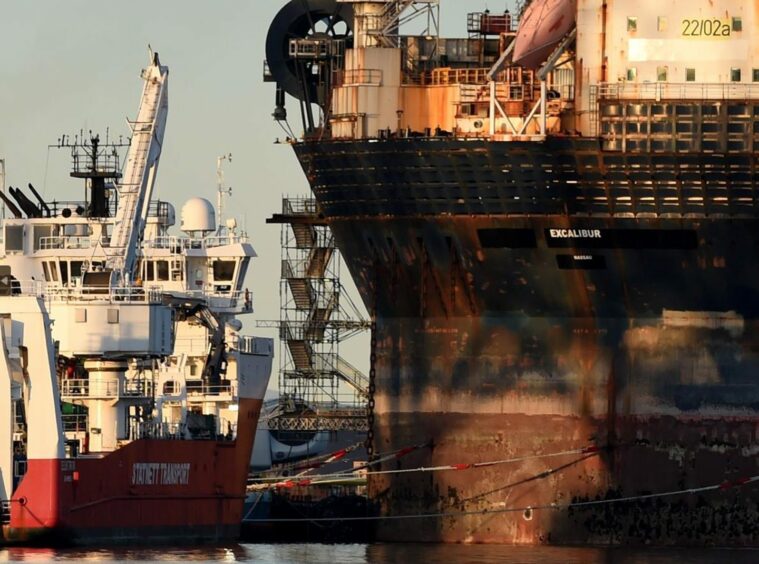
North Sea minnow Ping Petroleum has criticised the UK government’s windfall tax and decried “out of alignment” regulators overseeing the industry.
Charles Taylor, wells manager at the Malaysian-owned operator, was discussing challenges ahead for Ping’s Avalon project in the UK at Subsea Expo in Aberdeen.
Avalon is a 20 million-barrel development, hailed by the regulator as a “trail-blazer” for its plans to be one of the first schemes to decarbonise its production through use of floating offshore wind for its power.
But Mr Taylor pointed to the windfall tax and regulatory issues as barriers for its project and the wider industry.
Mr Taylor said: “I cant really present something about challenges in the North Sea at the moment without mentioning tax and fiscal regimes and EPL (Energy Profits Levy). I think at the moment uncertainty on EPL in particular is very challenging for all operators regardless of your size.
“So, you know, I don’t want to get into that now but it’s the usual, it’s the tax advisers becoming way, way higher up the agenda than the engineering team. So we’ll find out hopefully, and we’re working with OEUK (Offshore Energies UK) to try to find a way forward on that.”
Ping Petroleum is the latest in a series of operators to hit out against the levy in recent weeks, following EnQuest and Apache who have reduced spending plans in light of it.
The industry is now taxed at 75% overall – but the EPL includes a subsidy for decarbonisation projects like the one Ping Petroleum is working on.
Other issues for the project include offshore wind leasing; the firm’s planned turbine, hoped to be nearby to the development area, is not part of Crown Estate Scotland’s Innovation and Targeted Oil and Gas (INTOG) awards area.
That could mean having to place the turbine far from the project if the licence application isn’t accepted.
“That is definitely an issue for us, having a floating wind turbine 40+ kilometres from our asset, especially as a single turbine,” said Mr Taylor.
Regulatory issues are another problem for the wider industry on its decarbonisation journey, added Mr Taylor, specifically for integration of offshore wind and oil and gas.
He spoke of a “lack of collaboration between regulators and different parts of industry” more broadly, before saying the same issue exists in the regulatory space.
“We have NSTA, Crown Estate Scotland, Marine Scotland, Nature Scotland, OPRED, HSE and BEIS. We also have a Scottish Government and a British Government.
“All of those people are trying their very best to deliver net zero solution for the UK PLC as fast as possible, but they’re all slightly out of alignment. That, for me, is a big frustration.
“We have to keep working and keep talking to try to make that better.”
Head of Supply Chain at the NSTA, Bill Cattanach, who hosted the event, said the comments resonated, and hailed Ping’s Avalon scheme “as an innovative project and a trail blazer”.
“I was listening to your challenges and I think the regulatory burden that you talk about is something that we need to take away if we can and look at.
“I’m not so sure about what we can do with Treasury about EPL but it’s certainly on our minds as well. I think the regulatory burden is something we can look at.”
Recommended for you

